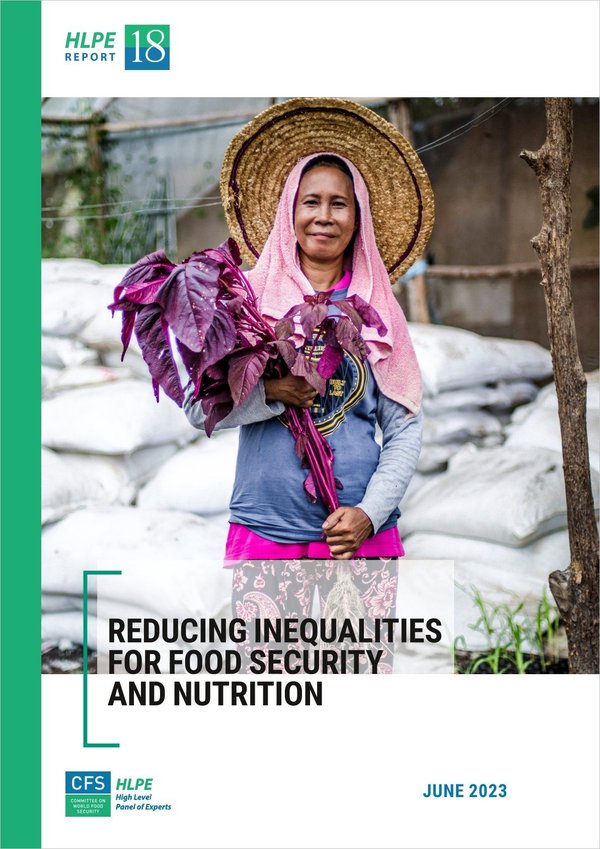 Read this article in French
Read this article in French- Share this article
- Subscribe to our newsletter
Reducing inequalities for food security and nutrition
The report Reducing inequalities for food security and nutrition, published by the High Level Panel of Experts on Food Security and Nutrition (HLPE-FSN) of the Committee on World Food Security (CFS) in June 2023, provides a conceptual framework for assessing inequalities in Food Security and Nutrition, the inequalities within and outside food systems that underpin them, and the systemic drivers of such inequalities.
The consequences of such inequalities are far-reaching, diminishing people's life chances, hampering productivity, perpetuating poverty and impeding economic growth. Unequal food security and nutrition outcomes have even sparked political unrest, eventually leading to protests and food riots.
The report highlights the ethical, socioeconomic, legal and practical imperatives for addressing these inequalities. It emphasises that food is a fundamental human right and that inequalities in Food Security and Nutrition undermine this right. In addition, by applying an intersectional understanding of inequalities – that is, considering the cumulative effects of multiple interacting inequalities on marginalised peoples – the report contributes to a more inclusive understanding and sustainable action to reduce food security and nutrition inequalities.
The report proposes a set of measures to reduce inequalities, both within and beyond food systems. It emphasises the need for a transformative agenda, aiming for structural change towards equity.
Inequalities in other relevant systems which affect food security and nutrition, such as education and health systems, contribute to inequalities in food security and nutrition outcomes. As a consequence, multisectoral governance of FSN provides opportunities to reduce FSN inequality but requires careful rules of engagement to mitigate power imbalances. The report also highlights the critical importance of understanding and addressing inequalities in the context of deep-rooted drivers such as climate change and conflict.
Chief areas of recommendations for states, inter-governmental organisations, the private sector and civil society include:
- working across sectors to enable more equitable access to resources, applying rights-based approaches;
- facilitating the organisation of disadvantaged stakeholders and build inclusive institutions and partnerships to improve representation;
- making equity-sensitive investments in supply chains and in disadvantaged areas;
- plan and govern food trade, retail, processing and food environments with an equity focus;
- ensuring universal access to services and resources that have a direct impact on FSN;
- embed an equity focus into trade, investment and debt governance related to FSN;
- leveraging SDG 10, reducing inequalities;
- taking into account the context of climate, ecological, political and economic crises in all FSN-related actions; and
- strengthening data and knowledge systems.
(CFS/ile)





Add a comment
Be the First to Comment